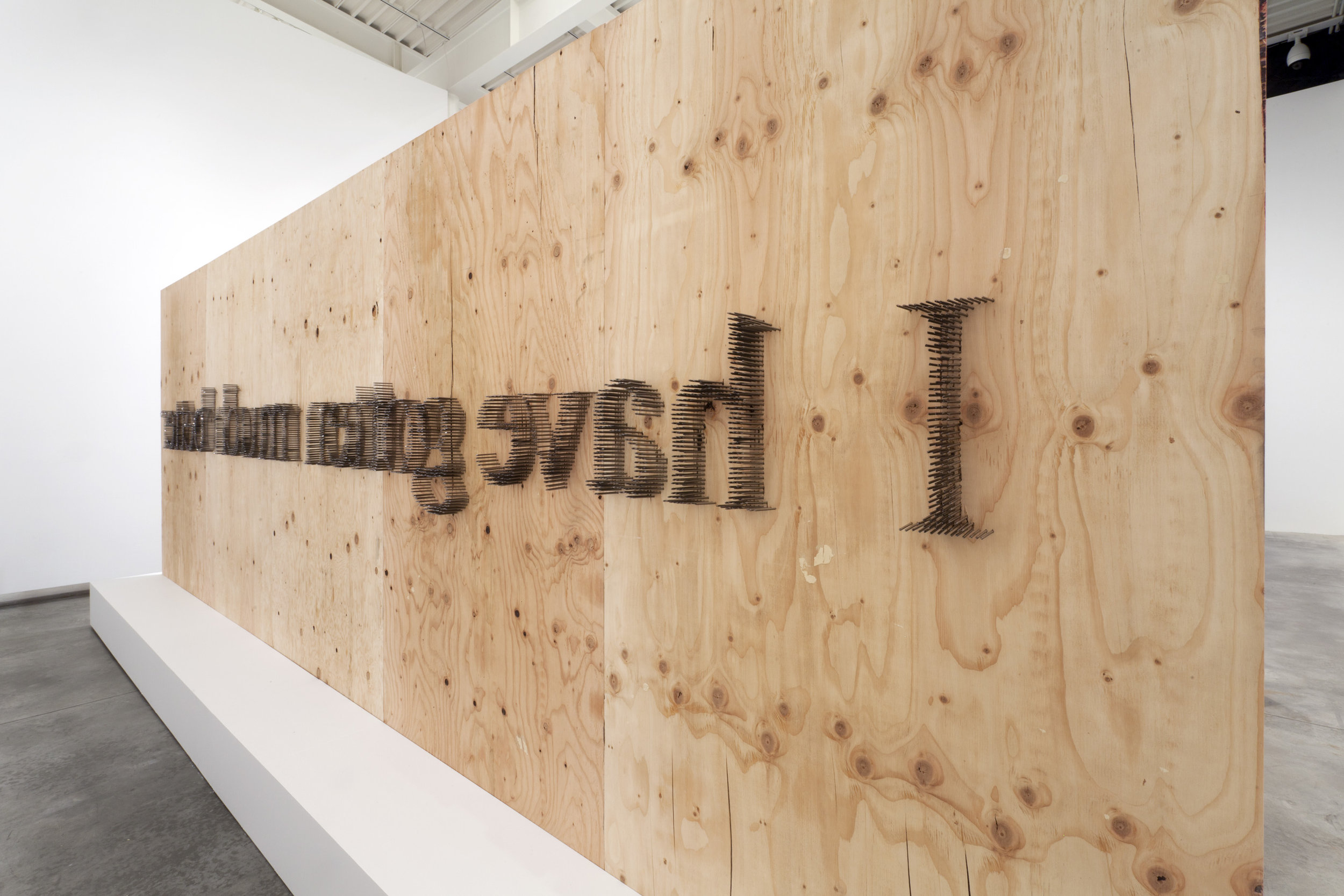The Pedagogical State of Metamorphosis
Mixed Medial Installation 700 x 300 x 150 Cm
Plywood, Construction Nails, Plaster Plinth, White Paint, Silicon Dioxide Microchip.
Description
The Pedagogical State of Metamorphosis deals with dualities, in this case language and materiality. A large sculptural work of plywood panels perforated by thousands of nails spelling out the message “I have gotten much better” accompanied by a small microchip with the same inscription. the sculpture’s statement joins the subtlety of language and its meaning with raw materials, brute force and precise crafting.
Excerpt from Exhibition Essay
Ali Ahadi has been experimenting with various materials during the last two years in order to find a way out of what he calls “the growing redundancy of politically engaged art.” In most cases, doing this has entailed using text or language to undermine the diametric relation between the art object and its meaning. He has, with considerable success, made a kind of art that is invested neither in signification nor in objecthood, but literally bonds both principles to their breaking point. To this end, he has made several works pairing different forms of written language from books, text projections, and designed typeface with other physical components, such as bookshelves, imaging equipment and now nails, plywood, and silicon circuit board. What unites these works is Ahadi’s insistence on separating the materiality of language from its signifying function, thus serving the links between the form of his work and their significance.
In Ahadi’s work, language is more than a visceral system of extreme complexity that escapes the will of those who use it. It is also a real situation in which the unlikelihood of an “event”—in this case the emergence of a new language of art—can unexpectedly become its very possibility through a material encounter with the physical object of language. As with the invention of the alphabet, the objectivity of language is a starting point for Ahadi to dissolve the association of a thing and its meaning by uniting them in the anticipation of the possibility of what could be eventual. This possible event should not be interpreted as Ahadi’s yearning for the return of a new form of avant-garde, but perhaps something unknown and similar to an insurrection with no prior contingency, a rebellion that, in the words of Andre Breton, can only be "its own justification". "You taught me language; and my profit on't. Is, I know how to curse.
*Mohammad Salemy: "Language and the Eventuality of Avant-garde" (Independent Curator, New York/Berlin); Originally written for the exhibition catalogue of the "Hail to the Destroyer" Exhibition at the Vancouver's Morris and Helen Belkin Gallery. (Read the full essay)












